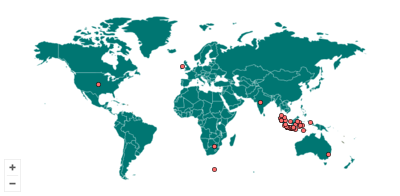ANALYSIS OF JUDGE'S DECISION NO. 319/PDT.G/2017 ON DEFAULT LAWSUIT ON MURABAHAH BI AL-WAKALAH CONTRACT
DOI:
https://doi.org/10.22373/al-mudharabah.v4i1.3049Keywords:
Contract exacution, Default,, Islamic Economic Law, Judges decisionAbstract
The implementation of murabahah bi al-wakalah conducted by BRI Syariah bank branch Banda Aceh has caused disputes because the customers did not fully accept the representation for the house purchase that had been delegated in the financing contract. This has led to conflicts between the bank, customers, and developers. The aim of this thesis research is to examine the opinion of the Sharia Court of Banda Aceh City in decision No.319/Pdt.G/2017, which rejected the plaintiff's lawsuit and also dismissed the defendant's exception, and to analyze the judge's considerations in the default lawsuit on murabahah bi al-wakalah financing at BRI Syariah KCP Banda Aceh. To obtain objective and valid data, the author used a research design with a normative juridical approach, qualitative research type (qualitative research), exclusively (content analysis), and data collection techniques through documentation. The results of the author's research are that in the trial process, the panel of judges of the Sharia Court of Banda Aceh City rejected the defendant's lawsuit because it was not proven that the defendant had committed default and explicitly rejected all of the plaintiff's claims, stating that the murabahah bi al-wakalah financing agreement had been fully implemented by the defendant and everything was in accordance with the agreement contained in the contract. However, in this decision, there is a part that was not disclosed, especially regarding the defendant's reason for directly disbursing the second stage of financing to the developer, which should have been based on the second-stage disbursement agreement and still had to be carried out by the debtor customer. Thus, the decision made by the panel of judges needs to be reviewed, especially to reveal the fact of the second-stage fund transfer directly to the developer before the house ordered by the debtor customer was completed and handed over to the plaintiff.
Downloads
Published
How to Cite
Issue
Section
License

This work is licensed under a Creative Commons Attribution-NonCommercial-ShareAlike 4.0 International License.












